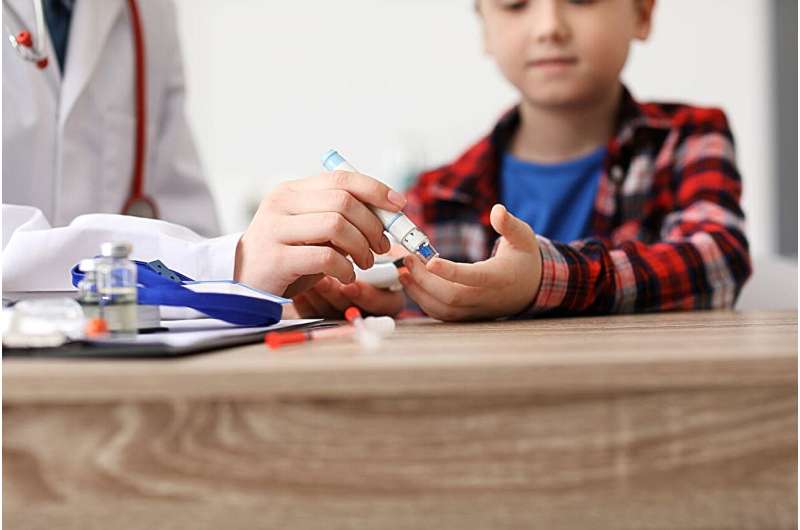[ad_1]
Lowri A. Allen, M.B.Ch.B., from Cardiff College in the UK, and colleagues carried out a meta-analysis throughout 5 cohorts of people with sort 1 diabetes (complete, 11,475 people) to match the proportion of people with affected fathers versus moms.
The researchers discovered that just about twice as many people had an affected father versus mom (total odds ratio [OR], 1.79). The proportion of people with an affected father was larger each amongst people identified with sort 1 diabetes older than 18 years (OR, 1.64) and people 18 years or youthful (OR, 1.80). There was an extra of people with affected fathers provided that parental analysis was earlier than offspring delivery in contrast with analysis after delivery. Age at analysis and kind 1 diabetes-free survival curves have been comparable amongst offspring of affected fathers and moms.
“Additional analysis is required however finally, we hope that it could be doable sooner or later to supply therapies on the very earliest levels of life to forestall the onset of sort 1 diabetes in people who’re at significantly excessive threat of the illness,” Allen mentioned in a press release.
© 2024 HealthDay. All rights reserved.
Quotation:
Threat for creating sort 1 diabetes doubled with paternal hyperlink (2024, August 16)
retrieved 16 August 2024
from
This doc is topic to copyright. Aside from any truthful dealing for the aim of personal examine or analysis, no
half could also be reproduced with out the written permission. The content material is supplied for info functions solely.
rewrite this title to make it extra intriguing Threat for creating sort 1 diabetes doubled with paternal hyperlink
rewrite this content material and hold HTML tags

People are much less prone to have sort 1 diabetes if their mom has the situation than if their father is affected, in response to a examine scheduled to be introduced on the annual assembly of the European Affiliation for the Research of Diabetes, being held from Sept. 9 to 13 in Madrid.
Lowri A. Allen, M.B.Ch.B., from Cardiff College in the UK, and colleagues carried out a meta-analysis throughout 5 cohorts of people with sort 1 diabetes (complete, 11,475 people) to match the proportion of people with affected fathers versus moms.
The researchers discovered that just about twice as many people had an affected father versus mom (total odds ratio [OR], 1.79). The proportion of people with an affected father was larger each amongst people identified with sort 1 diabetes older than 18 years (OR, 1.64) and people 18 years or youthful (OR, 1.80). There was an extra of people with affected fathers provided that parental analysis was earlier than offspring delivery in contrast with analysis after delivery. Age at analysis and kind 1 diabetes-free survival curves have been comparable amongst offspring of affected fathers and moms.
“Additional analysis is required however finally, we hope that it could be doable sooner or later to supply therapies on the very earliest levels of life to forestall the onset of sort 1 diabetes in people who’re at significantly excessive threat of the illness,” Allen mentioned in a press release.
Quotation:
Threat for creating sort 1 diabetes doubled with paternal hyperlink (2024, August 16)
This doc is topic to copyright. Aside from any truthful dealing for the aim of personal examine or analysis, no half could also be reproduced with out the written permission. The content material is supplied for info functions solely.
[ad_2]




GIPHY App Key not set. Please check settings